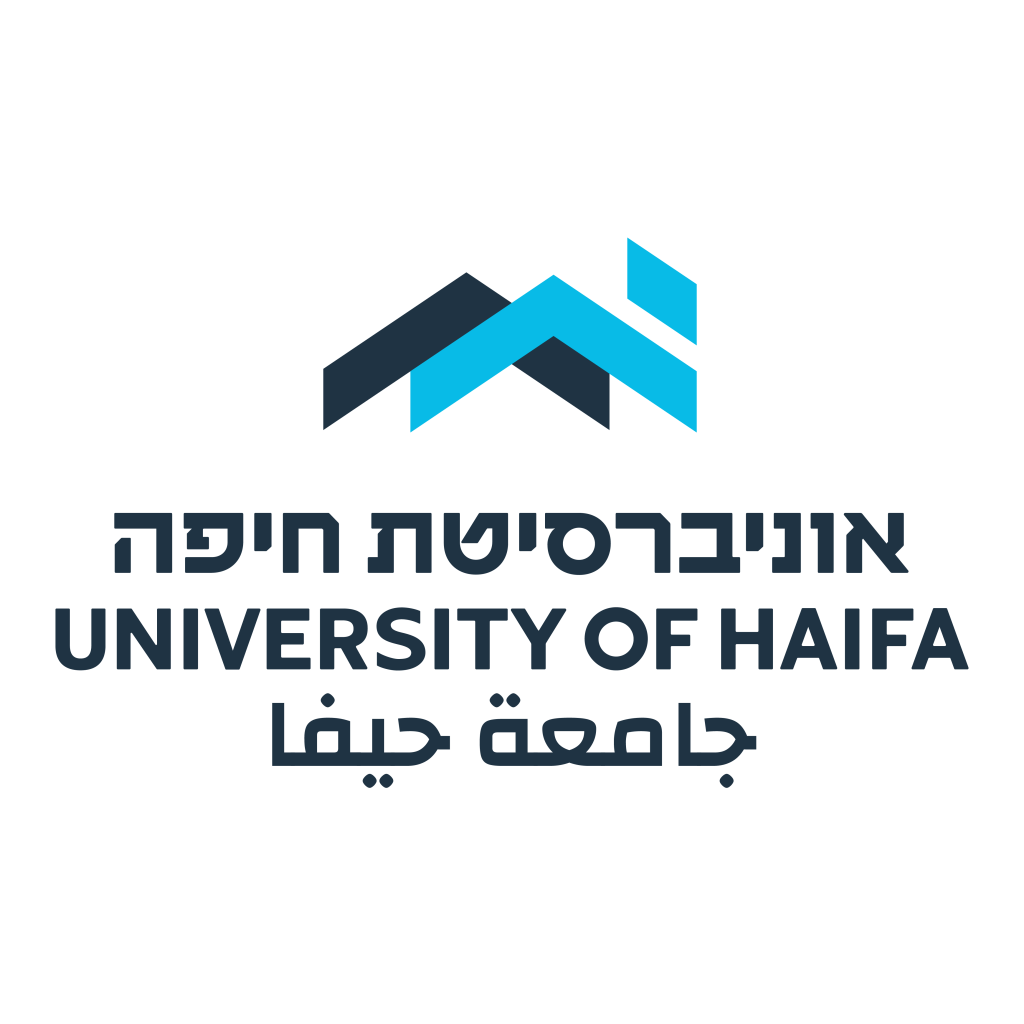Post-doctoral fellows research 2022-2025
Democratic Backsliding in the Shadow of International Law
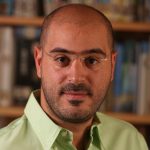 Nadiv Mordechay
Nadiv Mordechay
The Israeli constitutional order has been examined, in recent years, under the paradigm of democratic Backsliding. In this framework, erosion of constitutional norms and institutions are analyzed in light of the consolidation of executive power and the gradual transition of the democratic model and the Israeli constitution to an illiberal one. However, research on this subject has not yet been able to attach these processes with International Relations and International Law. A vital question that has not been addressed in the research is how a reality of armed conflict and international pressure through international law affects the domestic system, particularly —the processes of democratic backsliding. This refers to the intersection of two extreme conditions imposed on the state—on one hand, a domestic
process of democratic erosion, and on the other hand, international pressure resulting from armed conflict. In Israel, The Gaza war led to a distinct escalation of these processes, among other things through international pressure and legal proceedings at the ICJ and the ICC. The paper will try to describe the development of “backsliding in the shadow of international law”, using a theory that analyzes the way in which Illiberal threshold countries drive through a process of seclusion in light of international pressure exerted on them. The paper will argue that an escalation of international pressures following an armed conflict can lead the state to extreme conditions, in which domestic elites undergo a cognitive shift that distances them from the liberal order of international law, thereby intensifying the process of democratic backsliding. Describing the relationship between domestic processes of democratic backsliding and developments in the international arena will allow a richer picture of the changes that are taking place in the constitutional order.
The October 7th Massacre: Primary Challenges faced by Israel Nationally and Internationally
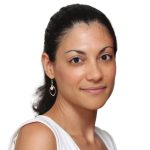 Shiran Altman-Battler
Shiran Altman-Battler
This project explores legal perspectives surrounding the October 7th 2023 atrocities. Since the atrocities of October 7th Israel has found itself in an unprecedented situation. Alongside its war efforts, new, complicated – legal – issues have arisen, both at the national and international levels. Since October 7th Israel has been conducting a war against Hamas, involving the capture of hundreds of terrorists. Consequently, the Israeli authorities have been debating how the State should deal with these war criminals. This is an unprecedented query, given the scope and systematization of the crimes, which further divides into two fundamental questions. First, what is the proper forum in which the terrorists should be trialed ? Second, which laws should underpin these trials? These quandaries are not purely legal. Moreover, they require the weighing up of moral and political – national and international – considerations. These issues impact not only domestic Israeli society but also Israel’s relationship with international organizations (especially the UN and international tribunals (ICJ, ICC)), as well as other nations.
The project aims to explore these questions, and especially the possibility of using the instrument of plea bargains in cases which involve evidentiary complexities. The prominent example relates to gender crimes since many of the victims were raped and then murdered, thus silenced forever and were buried without a formal process of collecting sufficient forensic evidence. Consequently, there is a fear that the Israeli prosecution might not be able to establish the criminal foundations of sexual offences beyond a reasonable doubt, and that these crimes may therefore not be added to the pages of the history books. Plea bargains might overcome these evidentiary difficulties. Furthermore, guilty pleas could be used as an important instrument in the Israeli struggle to combat current (and future) denial of the crimes, as well as to spare survivors from having to give traumatic testimonies.
In addition, the research will examine the differentiation between distinct groups of victims: those injured or murdered, those kidnapped, families of the affected people, their community members, and the ways these distinctive groups may seek justice to themselves by using the pathway of collective suits against the State.
Transitional justice and the potential establishment of a civil pathway for collective suits against the State for historical wrongs.
Shiran Altman-Battler
This project examines the new phenomena of Israeli Courts which remove barriers and enable different victim groups to collectively sue the State of Israel for their historical wrongs.
Historically, the correction of past wrongs committed by State institutions and branches against certain groups have not been addressed by private law. Civil law doctrines have created an intricate web of rules and principles that impose significant procedural restrictions on the success of suits against States for historical wrongs. These restrictions include various statutes of limitations, confined definitions of the duty of care in tort law, and the various traditional immunities accorded to States and their institutions. Civil law could not deal with such complicated historical issues, and thus the purpose of those legal doctrines was clear: labelling past wrongs as extra-judicial issues. Consequently, therefore, the prevailing view is that reparations of any kind for such past injuries should be obtained in extra-judicial fora, primarily in politics.
The past three decades, however, have seen significant conceptual changes in the ways private law addresses such historical wrongs. Apparently, in recent years, there has been a global trend of massively eroding traditional legal notions and principles, and primarily removing various legal hindrances, in order to allow various groups to seek compensation for historical wrongs they claim to have sustained. These dramatic changes started around the end of the 20th century as Transitional Justice movements emerged throughout the world.
Have Israeli courts joined this global trend in which procedural and legal barriers are removed to allow groups that claim to have suffered historical wrongs sue their respective States and State institutions? This project will address this question through an analysis of three Israeli test cases: the struggle of the families of the Missing Children of Yemen, the Orient, and the Balkans; the struggle of the residents of Amal B Hill (Giv’at Amal B in Tel Aviv); and the struggle of Ethiopian Jews who were brought to Israel in a covert ‘Mossad’ (the Israeli intelligence agency) operation.
This research could also inform whether this type of legal tool could be used by new circles of victims’ groups, which were affected by the October 7th massacre, such as, for example, the families of the civilians who were abandoned by the State (and the Army) and were injured, murdered or kidnapped by Hamas throughout Southern Israel.
Designing Courts in the Age of Constitutional Polarization
 Fady Khoury
Fady Khoury
Against a reality of deep polarization, the experience of divided societies provides tools for managing nascent polarization in relatively stable democratic systems. This research focuses on constitutional polarization, which encompasses disagreements about the entire constitutional order or a subset of its institutions, most notably the institution of judicial review/constitutionally empowered apex courts (constitutional/supreme courts). The legitimacy of the institution itself has increasingly been questioned by mainstream political actors in many polities, including more recently in Israel. Though, comparative studies have shown a variance in the ways polarization affects apex courts, suggesting that some designs might provide better shields than others.
Fadi’s project suggests that power-sharing systems hold important lessons for polities undergoing a process of constitutional polarization. More concretely, his argument is that success and failure in power-sharing systems to insulate Apex Courts from the pressures introduced by polarization may have valuable lessons for the future of judicial review, and more broadly constitutionalism, for a wider set of cases, where the pressures of constitutional polarization have resulted in calls that range from major reforms to even abolishing judicial review altogether. However, it should be noted that the literature on power-sharing has tended to overlook the design and function of apex courts. This project, therefore, seeks to contribute to two distinct scholarly fields: The emerging field of constitutional polarization and to power-sharing theory. Fadi contends that courts may be designed to realize the Rawlsian notion of public reason. Three design dimensions are considered for Constitutional Courts: Cross-community representation; access/standing (broadly conceived or limited to political/institutional actors), and internal decision-making procedures (permitting dissent or mandating unanimity). These three design features have the potential to determine the degree of public/sociological legitimacy given to courts’ rulings; the degree of engagement by the public and civil society in constitutional policy-making, and the ability of constitutional adjudication to rise above partisan reasons to promote a shared set of constitutional principles to decide politically salient cases.
The Separation of Powers in Criminal Proceedings during Conventional Times and at Times of Crisis
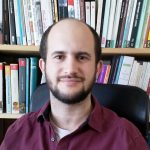 Benjamin Newman
Benjamin Newman
This research examines the separation of powers doctrine in criminal proceedings and its impact during times of crisis. The recent judicial reforms proposed by the Israeli government have raised concerns about the concentration of power. While the separation of powers is often discussed in constitutional contexts, it is often neglected in criminal proceedings. The recent security crisis, marked by increased arrests of Arab citizens for speech-related offences and suppressed demonstrations, underscores the need to scrutinize law enforcement during crises. However, it is the lack of judicial supervision during conventional times that warrants examination.
Israeli criminal procedure, adhering to the adversarial system, traditionally maintains a strong separation of powers, with courts acting as independent checks on state power. However, managerial judging has taken hold of the criminal process, with judges actively inducing guilty pleas for efficiency. By examining the criminal procedure during normal times, it becomes evident that without rigorous scrutiny, the court relinquishes not only its supervisory role but also its core functions in ascertaining guilt and punishment. Consequently, despite the formal separation between authorities, without a vigilant and critical approach, rights and liberties remain unsupervised, a concern that becomes particularly pronounced in times of crisis.
Appraising Conflict: Property Valuations and Urban Governance in East Jerusalem
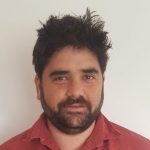 Uri Ansenberg
Uri Ansenberg
In the context of East Jerusalem’s contested urban landscape, this research explores the complex role of property appraisals amidst the Israeli-Palestinian conflict. By examining the Israeli Property Arbitrament Mechanism (PAM) and employing an ethnographic approach, the study seeks to uncover how techno-economic knowledge mediates geopolitical tensions through the valuation of property. This investigation aims to bridge political urban studies and valuation practice studies, offering insights into the interplay of legal, economic, and political factors in urban governance. The research contributes to understanding the nuanced ways in which property appraisals serve as instruments of control and negotiation, potentially informing more equitable approaches to urban governance in contested cities.
Managing the COVID-19 Epidemic Locally: A bird’s eye view of the challenges faced by local governments, local responses, and the differential local needs of municipalities in Israel
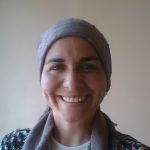 Danielle Zaychik
Danielle Zaychik
This research aims to describe the experience of local governments managing the COVID-19 epidemic, with a focus on five key areas: crisis management, public obedience, law enforcement, vaccinations, and cooperation with other agencies and organizations. The research surveys local governments in Israel about the challenges and approaches taken with regards to these topics, with the goal of identifying differences between localities and understanding how to better tailor policies and central government support to effectively serve local interests.
Hospitals as Frontlines: Palestinian Physicians and the Politics of Recognition on the Pandemic Frontlines in Israel
 Guy Shalev
Guy Shalev
This research is concerned with medicine’s ethical framework of benevolence, universality, and political neutrality and how it affects social dynamics in the extreme political conditions of Israel/Palestine. It consider the Israeli space of medical practice as exceptional, not because it is politically neutral, but rather because its perception as such enables different modes of imagining, enforcing, resisting, and re-inscribing colonial politics.
Guy’s interest in medicine’s eminent ethical framework and professional capital and its role in political structures also drives his current two major projects. The first project, entitled Doctors and the State, addresses the moments when medical doctors and doctors’ organizations respond to state-led political agendas as agents of ethical standards, torture, humanitarianism, and personhood. Funded by the Dan David Young Researcher Fellowship in Bioethics, he studies the case of the struggle against the force-feeding of hunger-striking Palestinian prisoners in Israel. He looks into various solidarity networks of physicians in the power struggle between medical professionals and the Israeli state and examined doctors’ call for conscientious objection and the moral and political justifications they employed. He analyzes the acts of three networks of doctors: (1) the Israeli Medical Association, which invoked ideas of universal medical ethics and global networks of professional solidarity in resistance to force-feeding; (2) Civil society organizations, led by Physicians for Human Rights–Israel, which advocated for prisoners’ political rights; and (3) Palestinian physicians with Israeli citizenship who resisted in national solidarity with their non-citizen compatriots. A rare case of physicians’ participation in the highly politicized Israeli ‘security discourse,’ these three solidarity networks gained different degrees of legitimacy in the public sphere. Guy shows how medical ethics, the ethos of medical neutrality, and ideas of humanistic medicine played a role in forming and mobilizing professional solidarities.
The second project, entitled Hospitals as Frontlines, is a collaborative study based in the UK and Israel and is in preliminary stages. Together with Dr. Gry Wester from King’s College London, they examine the increased visibility of minority health care workers during the COVID-19 pandemic in relation to discourses of exclusion in British and Israeli societies, and the possibilities and limitations of the medical sphere as a political arena for advocating and enacting social change. The Israel-based research was also funded by the Truman Institute.
In Israel, when the pandemic threat became imminent, leaders and commentators used militaristic jargon to address the “war on corona” and the “heroes” on the medical frontlines. But since a fifth of Israel’s healthcare workers are Palestinian citizens, Israeli heroism took on a new face. This research-in-progress includes interviews with Palestinian physicians and political activists, and media analysis. The study considers the experiences and perspectives of Palestinian physicians in moments of health crisis and in light of unprecedented visibility as Palestinians in the Jewish-Israeli public. Particularly, in the context of public campaigns that seized upon this increased visibility to challenge the marginalization of Palestinians by featuring Palestinian doctors saving Israeli lives. This visibility highlighted the limitations of the recognition of the Palestinian minority in Israel and the potential and constraints of the medical field as an arena for a politics of recognition.
Theorizing Transition in Intractable Conflict: From Violence and Subjugation to Parity and Cooperation in Israel/Palestine.
 Limor Yehuda
Limor Yehuda
Limor was chosen by the Center PIs for 2022-23 academic year. In her research she aims to add to existing understandings regarding transitional processes from conflict and domination to peaceful arrangements of power-sharing. Based on an overview of socio-legal processes in Israel/Palestine during the last two decades, she seeks to identify those processes that increase, or may increase, the likelihood of parity and cooperation in the local context and those that may decrease them.
In recent years a new paradigm for resolving the Israeli-Palestinian conflict has been consolidated in the academic literature and within civil society discourse. The new paradigm is based on power-sharing arrangements — in the form of a confederation between two independent and sovereign states or through a bi-national (consociational and/or federal) state. While power-sharing arrangements are usually viewed as a pragmatic solution for group conflicts, they also play a substantial role in remedying injustices in such places: first, as they can address group-based inequalities and political marginalization; second, as they provide an institutional framework within which ex-rival groups can participate and negotiate in a context of non-domination. Thus, power-sharing arrangements should be viewed not only as a pragmatic tool for ending violent group-based conflicts but also as an integral element of justice in political transitions.
According to the proponents of the new paradigm, power-sharing arrangements are a promising framework for addressing root causes and root injustices of the Israeli-Palestinian conflict that cannot be addressed within the traditional two-state solution. However, existing accounts consider the conditions in Israel/Palestine as unlikely to facilitate the adoption of power-sharing arrangements, either within a bi-national state or within a confederation of two-states.
Main factors for this appraisal include the extreme imbalance of power between the national groups and the cleavages of nationality, language and religion which reinforce rather than crosscut. Although the appraisal seems sound, it does not fully account for the mixed internal/external nature of the conflict, and especially does not explore the ways in which social, economic and legal processes, among the national and international political elites, social mobilisers or grassroots, may change the background conditions and support parity and cooperation in Israel/Palestine.
Making the Victim of Terrorism: Contested meanings and cultural shifts in the emergences of a new social category
 Ben Bornstein
Ben Bornstein
Ben’s research contributes to the understanding of current global victimhood, looking into wide-scale political crises in the world, such as wars in Syria, Ukraine, and Nagorno-Karabakh, as well as major natural disasters such as the Turkey-Syria earthquake. Dealing with public support for victims poses a unique challenge for societies in the face of these atrocities. While the global legal norms regarding compensation are more advanced than ever, we also face a wave of worldwide political instability and a democratic retreat that reshapes the relationship between states and their citizens. Examining the field of victim compensation would help understand the relationship between these cultural-political changes and the ways in which states perceive ongoing crises and deal with their consequences.
Setting Boundaries to the Rule of Law in Israeli Children’s Weeklies of the 1950s. A Test Case for the Notion of Heroism in Socio-Legal Discourse
 Talia Diskin
Talia Diskin
Children’s weekly magazines in Israel’s first decade offer a unique arena for legal research, since they provide a broad field for learning about the nature of the effort made by their curators to instill legal consciousness in children. These publications, as prominent educational materials and popular leading leisure instruments, mediated to their young readers the current events, and they are a barometer of values, including the rule of law. Accordingly, the article presents some of the values that the weeklies stressed for coping with the challenges of the time from a legal perspective. The article also describes how cultural heroes in Israel were presented in the magazines and defined the concept of the rule of law of the period. It shows that along with the weeklies’ general commitment to the rule of law and the appreciation of law-abiding figures who strived for good, the magazines, including their editorials and op-eds, featured in their literature, illustrations, and other elements, a deeper layer of acceptance and even encouragement of some behaviors that were inconsistent with the principle of upholding public law and human rights in a broad sense. This is especially apparent concerning the conduct surrounding border security. (paper was accepted for publication in Israel Law Review.
In addition to this project, Talia is working on a new book on law and texts for children in the first decades after the holocaust. Talia is the recipient of the Yad Ben-Zvi Prize (named after Dr. Natanel and Erika Lorch) for a book on the history of the State of Israel, On the Language of the Law and the Language of Children.
